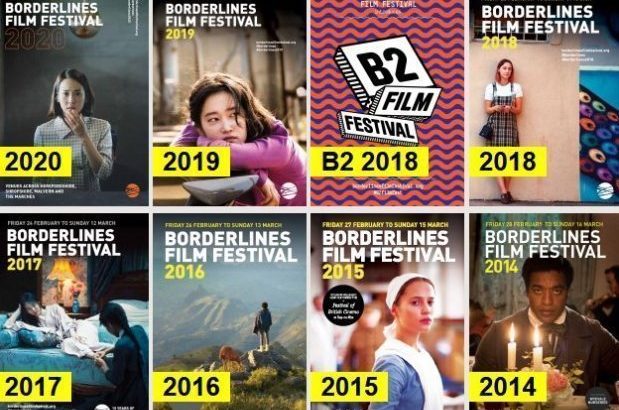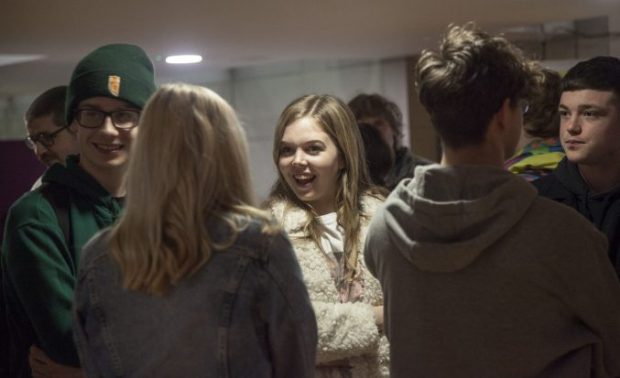Borderlines is a film festival like no other. It lasts for 17 days, has 27 venues spread across Herefordshire, Shropshire and west Worcestershire and Powys with 280 events -17 per day for 17 days. According to The Guardian ‘Not so much a festival as a full-scale invasion’. It’s the largest film festival in Central England, proving that there is a vibrant cultural life outside the big cities.

An unlikely festival location
How did this unlikely festival flourish in such a sparsely populated rural area? In 2003, the wonderful Rural Media Company decided to put on a rural film festival, to a chorus of many doomsayers (What? In Herefordshire? Are you mad?). But there were a number of factors that made it work:
- the experience and enthusiasm of Director David Gillam and Producer Naomi Vera-Sanso
- the infrastructure of cinema equipment and volunteers in rural venues and village halls developed by Flicks in the Sticks https://www.artsalive.co.uk/Flicks.aspx
- an enormous and unsatisfied appetite for high quality films from around the world.
Later the team was joined by Jo Comino as Marketing Officer, Naomi Vera-Sanso became Festival Director and the Independent Cinema Office took over programming. But a festival of this size could not happen without an army of around 300 volunteers and a strong unpaid board of directors not averse to getting their hands dirty.
So much activity

It’s important to create a festival feel so that it’s not limited to watching films. There are festival desks, previews, pop-up events, local film makers participating in an open screen event, a B2 event for a younger audience, visiting speakers, audience voting, heated post-film discussions, analogue tweets on post-it notes and social media engagement. Venues buzz with activity.
Before the pandemic came the flood
In the final weeks of February, Herefordshire, home of many of our venues, was under water. Despite this, our opening gala took place on 28th February and 17 days later the festival ended.

Two days after that, all our venues were closed down, after record breaking attendances of over 23,000. Good planning? No, just incredibly good luck.
Becoming a CIC
Why did we decide to become a community interest company (CIC)? Originally a Limited Company, we did apply for charitable status early on. The Charity Commission declined to accept us - informal feedback informing us ‘It’s just people enjoying themselves’, (which would never do). A CIC was an obvious fit and the process was painless with the Regulator’s office always available to help. We’ve been a CIC for over ten years and as the CICs have become more common, the label has been increasingly a symbol of our commitment to our audience and community.
If I could suggest one thing that would improve the lot of CICs it is in the area of taxation. The biggest advantage of charitable status is that a surplus is not subject to tax, enabling charities to build up reserves. Conversely, the biggest disadvantage of being a CIC is that they are subject to corporation tax in exactly the same way as a commercial company. Building up essential reserves is penalised and, withstanding the shock of events such as the present one, is made that much more difficult. A modest tax-free band for CICs would have a tiny effect on tax revenue but would be a major boost for the viability of smaller CICs.
After the pandemic – business as usual?
We are all in uncharted territory at present. I hope it will be business as usual in 2021, but there is no guarantee. But I’m confident that there will be a Borderlines Film Festival and that our loyal audience will cheer us on. The drama will unfold, both on screen and off. It's one of the strengths of film that we can recognise ourselves in the lives of others, and one of the joys of Borderlines that we are given so many opportunities to do so.
To keep in touch, sign up to email updates from this blog, or follow us on Twitter.
1 comment
Comment by Cliff Allum posted on
Thanks you for sharing this excellent story of how a community can build such a significant arts based festival. In the current context of Covid-19, the arts world is facing overwhelming challenges and its important to have such positive stories. Sad to see the CC taking such a view, but great the CIC option was there!